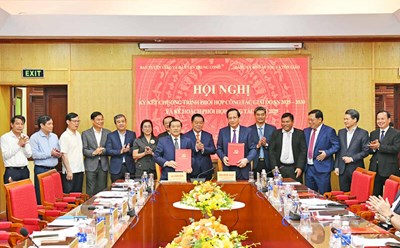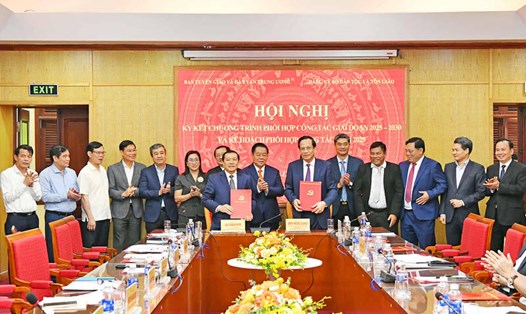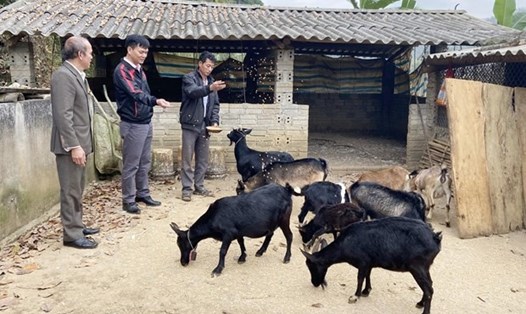pillars in sustainable development
Directive No. 39-CT/TW is considered a guideline for all levels, sectors and localities in organizing and implementing policy credit programs in a more methodical and effective manner. The Directive not only emphasizes the role of social policy credit in poverty reduction but also affirms that this is an important tool to promote the construction of new rural areas, development of ethnic minority and mountainous areas.
Implementing this Directive, the Standing Committee of the Provincial Party Committee issued Plan No. 254 to specify implementation tasks in the province. Accordingly, Party committees, authorities, departments, branches and sectors are required to participate synchronously, clearly defining their roles and responsibilities in leading, directing and allocating resources for social policy credit. Immediately after Directive No. 39-CT/TW was issued, the branch quickly implemented key activities.
Branch Director Dao Thai Hoa shared: We have developed a specific plan, organized the dissemination of the Directive to all cadres and civil servants in the system. At the same time, closely coordinate with Party committees, local authorities, and socio-political organizations to widely propagate to the people".
Up to now, the branch has coordinated with socio-political organizations to organize hundreds of propaganda sessions through meetings, radio, and leaflets. Through that, people have full access to information about credit programs, benefits, obligations and loan procedures.
Ms. H'Lien Nie, a household in Ea Tieu commune, Cu Kuin district - who has just received a loan from the near-poor household program, shared: "My family used to be very poor and had no capital to do business. Thanks to a loan of 50 million VND from the Social Policy Bank, I invest in raising cows, now I have a stable income, and my children can go to school fully".
As for Mr. Nguyen Van Hanh, a household in Krong Bong district, the loan of 70 million VND from the job creation program helped Mr. Hanh's family open a factory to repair agricultural machinery. "Thanks to capital and guidance from credit officers, I now not only have a stable income but also create jobs for two local workers" - Mr. Hanh shared.
Talking numbers
From the beginning of 2025 to now, the whole Dak Lak province has disbursed loans to more than 25,978 poor, near-poor households and other policy beneficiaries, with total lending turnover reaching 1,635 billion VND, an increase of 508 billion VND over the same period last year. Total outstanding social policy credit in the area has reached VND 8,538 billion, with more than 163,000 customers still in outstanding debt.
Policy capital has covered 180 communes and wards of the whole province, helping tens of thousands of poor households stabilize their lives and escape poverty. More than 40,000 workers have been created jobs; nearly 3,000 students in difficult circumstances have been loaned academic capital; nearly 56,000 clean water and environmental sanitation works have been built.
The province's poverty rate has decreased sharply from 10.94% (in 2022) to 6.38% by the end of 2024, contributing to completing the criteria for building new rural areas for 74 communes and promoting the goal of making Dak Lak the center of the Central Highlands in all fields. Policy credit is an effective tool to promote human development, creating motivation to rise up and escape poverty in a fundamental and sustainable way.
Director of Dak Lak Province Social Policy Bank branch Dao Thai Hoa said: "We continue to promote propaganda about the role of policy credit. In particular, the contents of Directive No. 39-CT/TW are focused on cadres, party members and people. Along with that, improve the capacity of the staff, reform administrative procedures, apply digital technology in credit activities to bring faster, more transparent and more effective services to the people".





